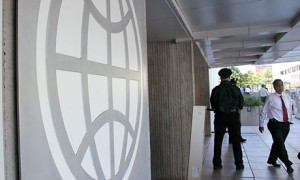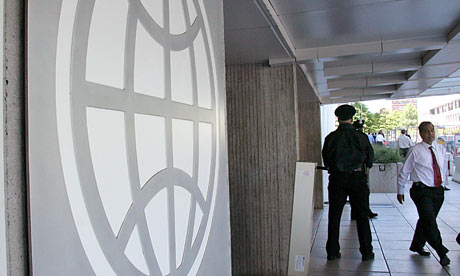
(AFP Photo)
The latest report issued by the World Bank on the status of its sewage water and sanitation project cited unresolved land acquisition issues as the reason behind delays of the project’s second phase.
The project, which aims to provide the Egyptian population in Menoufia, Sharqeya, Assiut and Sohag with access to improved sanitation and sewage services, has met with delays in its first phase as well, according to the report.
“The technical review process took an extremely long time to clear the detailed designs, though this has been improved by the repeated follow-up by the Bank Supervision missions,” it added.
“If these issues are not resolved, the government may have to…implement only sewerage collection, connecting them to the existing wastewater plants (WWTPS) with extra capacity,” the report said.
The project, whose budget is $300m, aims to construct wastewater treatment plants, collection networks, and decentralised treatment systems.
The project also intends to create wastewater treatment plans in selected villages, as well as offer support to the Holding Company for Water and Wastewater (HCWW) and the National Organisation for Potable Water and Sanitary Drainage (NOPWASD) in the project implantation, monitoring and evaluation.
The board of directors at the World Bank approved the project in 2011and set December 2016 as the project’s closing and finalising date.
The World Bank issued a statement earlier this month declaring that it remains a strong supporter of the Egyptian people in their drive for social justice and economic inclusion.
“A calm period ahead will be critical for the economy to recover quickly from its recent downturn and for our support to be most effective in helping end poverty and boosting shared prosperity for all Egyptians,” the statement read.
“We encourage all parties to embrace healthy economic management with a view of establishing sound inclusive governance with the participation of all of Egypt’s voices,” it added.



